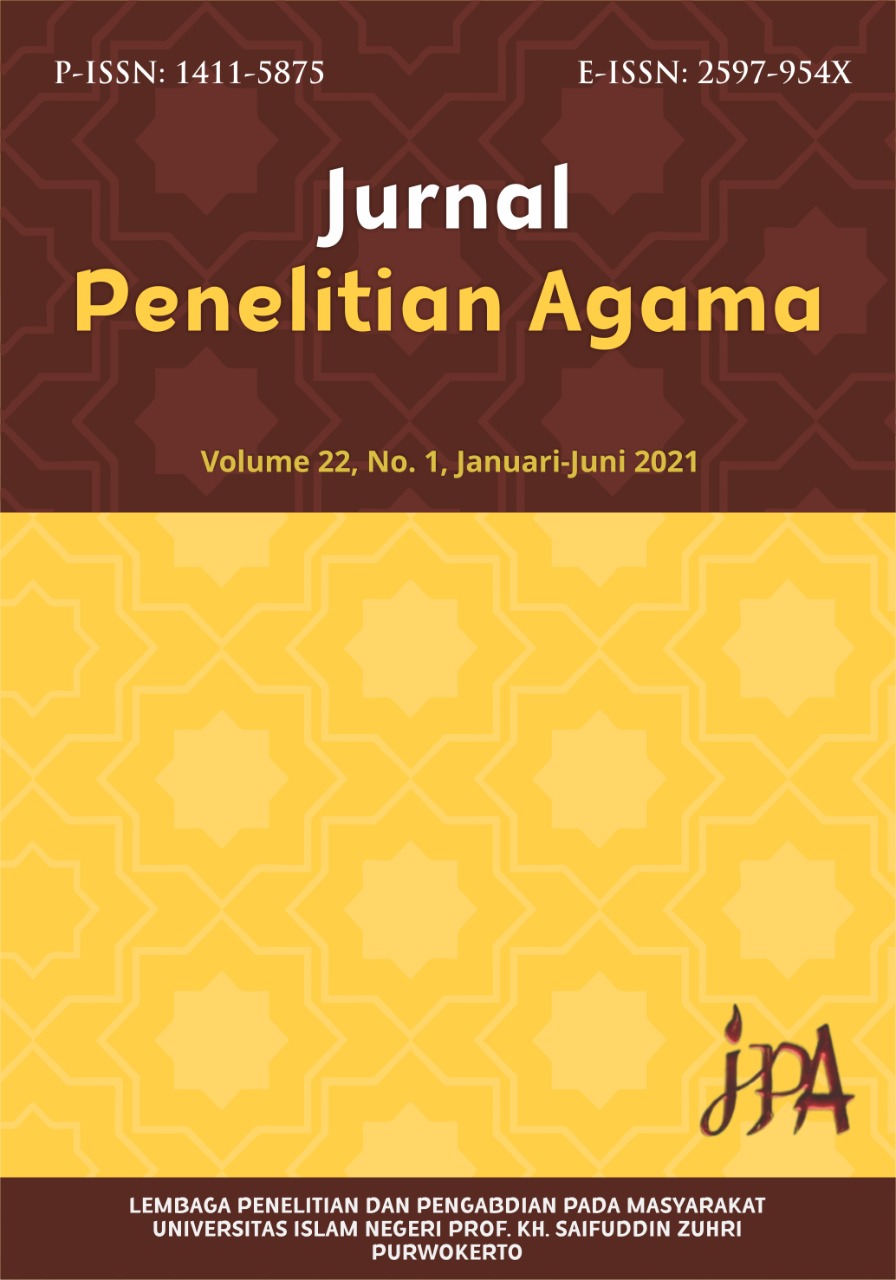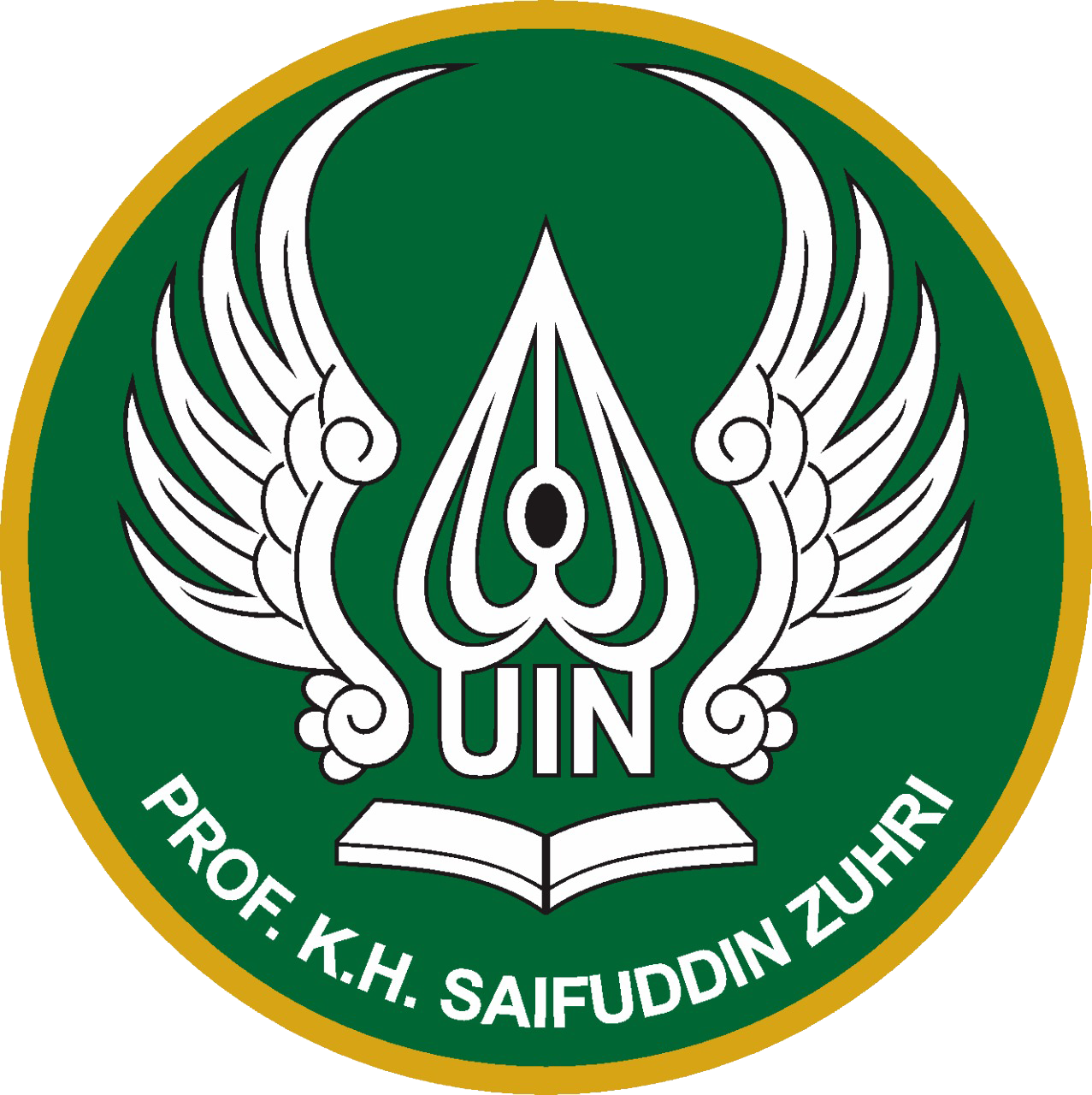Analisis Kebijakan Ekonomi dan Kesejahteraan Sosial Perspektif Maqashid Asy-syariah (Studi Pasal 88 UU Nomor 11 Tahun 2020)
DOI:
https://doi.org/10.24090/jpa.v22i1.2021.pp49-64Keywords:
UU Cipta Kerja, Kesejahteraan, Maqashid SyariahAbstract
The coverage of the draft Law on Job Creation has drawn polemics from a number of parties, one of which is from workers who have taken action against regulations related to labor clusters which have changed many articles in Law Number 13 of 2003 concerning Manpower. This paper examines the implications of the Work Creation Omnibus Law Bill from the perspective of maqasid sharia which focuses on labor issues. This type of research is included in qualitative research in the form of descriptive, which explains some of the articles of the Omnibus law Cipta Kerja. The method used to obtain data is a normative juridical approach in the form of primary legal material, namely Law no. 11 of 2020 concerning Job Creation. Then for the collection and data analysis methods using descriptive analytical. The results of the study show that the concept of welfare in the omnibus law refers to the labor law where every worker has the right to earn income that meets a decent living, this is self-intersest and material oriented, while in the concept of Maqashid syariah is an orientation to maslahah which covers all aspects. human life which includes protection of religion, soul, descent, wealth, reason.References
Al-Juwaini, I. A.-H., & Sosio-Historis, K. (t.t.). Konstruksi Pemikiran Maqashid Syari’ah. 27.
Hanifah, I. (2021). Peluang Tenaga Kerja Asing Untuk Bekerja Di Indonesia Berdasarkan Rancangan Undang-Undang Cipta Kerja. 6(20), 158–173.
Kurniawan, F. (2020). View of Problematika Pembentukan RUU Cipta Kerja Dengan Konsep Omnibus Law. Jurnal Panorama Hukum, 1(1).
Matompo, O. S., & Izziyana, W. vivid. (2020). Konsep Omnibus Law Dan Permasalahan Ruu Cipta Kerja. Rechtstaat Nieuw, 5(1), Article 1. http://ejournal.unsa.ac.id/index.php/rechtstaat-niew/article/view/506
Mubayyinah, F. (2019). View of Ekonomi Islam Dalam Perspektif Maqasid Asy-Syariah. Journal of Sharia Economics, 1(1).
Muzlifah, E. (2014). Maqashid syariah sebagai paradigma dasar ekonomi islam. Economic: Journal of Economic and Islamic Law, 4(2), 73–93.
Nuraini, A., & Muttaqin, M. N. (2019). Maslahah Sebagai Upaya Membangun Ekonomi Berdasarkan Etika: Arif Nur’aini, Muhammad Ngizzul Muttaqin. EKSYAR: Jurnal Ekonomi Syari’ah & Bisnis Islam, 6(02), 162–177.
Pusparini, M. D. (2015). Konsep Kesejahteraan Dalam Ekonomi Islam (Perspektif Maqasid Asy-Syari’ah). Islamic Economics Journal, 1(1), 45–59. https://doi.org/10.21111/iej.v1i1.344
Sah, M. R. K. (2021). Omnibus Law Cipta Kerja Dan Perspektif Ekonomi Islam Tentang Tenaga Kerja. Ats-Tsarwah: Jurnal Hukum Ekonomi Islam, 1(1), 16–29.
Sandu Siyoto, & Sodik, A. (2015). Dasar Metodologi Penelitian. Literasi Media Publishing.
Siregar, F. Y. D. (2020). Aspek Hukum Penyederhanaan Perizinan Badan Usaha di Bidang Lingkungan Hidup dalam Undang-Undang Cipta Kerja. Jurnal Ilmiah Penegakan Hukum, 7(2), 184–192. https://doi.org/10.31289/jiph.v7i2.3968
Syafe’i, R. (2015). Ilmu Ushul Fiqih. CV Pustaka Setia.
UU No. 11 Tahun 2020 tentang Cipta Kerja [JDIH BPK RI]. (t.t.). Diambil 18 Februari 2021, dari https://peraturan.bpk.go.id/Home/Details/149750/uu-no-11-tahun-2020
Zuhri, M. F. (2021). Omnibus Law: Inovasi dalam Bertradisi Hukum (Sisi Lain Undang-Undang Cipta Kerja). MAGISTRA Law Review, 2(1), 1–10. https://doi.org/10.35973/malrev.v2i1.1852
Zulkarnaen, A. H. (2020). Hukum Pengupahan Undang-Undang Cipta Kerja (Uuck) Dan Keinginan Semua Pihak Dalam Hubungan Industrial. Jurnal Hukum Mimbar Justitia, 6(2), 102–128. https://doi.org/10.35194/jhmj.v6i2.1177
Hanifah, I. (2021). Peluang Tenaga Kerja Asing Untuk Bekerja Di Indonesia Berdasarkan Rancangan Undang-Undang Cipta Kerja. 6(20), 158–173.
Kurniawan, F. (2020). View of Problematika Pembentukan RUU Cipta Kerja Dengan Konsep Omnibus Law. Jurnal Panorama Hukum, 1(1).
Matompo, O. S., & Izziyana, W. vivid. (2020). Konsep Omnibus Law Dan Permasalahan Ruu Cipta Kerja. Rechtstaat Nieuw, 5(1), Article 1. http://ejournal.unsa.ac.id/index.php/rechtstaat-niew/article/view/506
Mubayyinah, F. (2019). View of Ekonomi Islam Dalam Perspektif Maqasid Asy-Syariah. Journal of Sharia Economics, 1(1).
Muzlifah, E. (2014). Maqashid syariah sebagai paradigma dasar ekonomi islam. Economic: Journal of Economic and Islamic Law, 4(2), 73–93.
Nuraini, A., & Muttaqin, M. N. (2019). Maslahah Sebagai Upaya Membangun Ekonomi Berdasarkan Etika: Arif Nur’aini, Muhammad Ngizzul Muttaqin. EKSYAR: Jurnal Ekonomi Syari’ah & Bisnis Islam, 6(02), 162–177.
Pusparini, M. D. (2015). Konsep Kesejahteraan Dalam Ekonomi Islam (Perspektif Maqasid Asy-Syari’ah). Islamic Economics Journal, 1(1), 45–59. https://doi.org/10.21111/iej.v1i1.344
Sah, M. R. K. (2021). Omnibus Law Cipta Kerja Dan Perspektif Ekonomi Islam Tentang Tenaga Kerja. Ats-Tsarwah: Jurnal Hukum Ekonomi Islam, 1(1), 16–29.
Sandu Siyoto, & Sodik, A. (2015). Dasar Metodologi Penelitian. Literasi Media Publishing.
Siregar, F. Y. D. (2020). Aspek Hukum Penyederhanaan Perizinan Badan Usaha di Bidang Lingkungan Hidup dalam Undang-Undang Cipta Kerja. Jurnal Ilmiah Penegakan Hukum, 7(2), 184–192. https://doi.org/10.31289/jiph.v7i2.3968
Syafe’i, R. (2015). Ilmu Ushul Fiqih. CV Pustaka Setia.
UU No. 11 Tahun 2020 tentang Cipta Kerja [JDIH BPK RI]. (t.t.). Diambil 18 Februari 2021, dari https://peraturan.bpk.go.id/Home/Details/149750/uu-no-11-tahun-2020
Zuhri, M. F. (2021). Omnibus Law: Inovasi dalam Bertradisi Hukum (Sisi Lain Undang-Undang Cipta Kerja). MAGISTRA Law Review, 2(1), 1–10. https://doi.org/10.35973/malrev.v2i1.1852
Zulkarnaen, A. H. (2020). Hukum Pengupahan Undang-Undang Cipta Kerja (Uuck) Dan Keinginan Semua Pihak Dalam Hubungan Industrial. Jurnal Hukum Mimbar Justitia, 6(2), 102–128. https://doi.org/10.35194/jhmj.v6i2.1177
Downloads
Published
2021-06-17
How to Cite
Hidayat, M. (2021). Analisis Kebijakan Ekonomi dan Kesejahteraan Sosial Perspektif Maqashid Asy-syariah (Studi Pasal 88 UU Nomor 11 Tahun 2020). Jurnal Penelitian Agama, 22(1), 49–64. https://doi.org/10.24090/jpa.v22i1.2021.pp49-64
Issue
Section
Articles
License
Authors who publish with this journal agree to the following terms:
- Authors retain copyright and grant the journal right of first publication with the work simultaneously licensed under a Creative Commons Attribution-NonCommercial-ShareAlike 4.0 International License that allows others to share the work with an acknowledgement of the work's authorship and initial publication in this journal.
- Authors are able to enter into separate, additional contractual arrangements for the non-exclusive distribution of the journal's published version of the work (e.g., post it to an institutional repository or publish it in a book), with an acknowledgement of its initial publication in this journal.
- Authors are permitted and encouraged to post their work online (e.g., in institutional repositories or on their website) prior to and during the submission process, as it can lead to productive exchanges, as well as earlier and greater citation of published work (See The Effect of Open Access).








